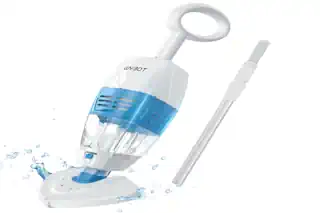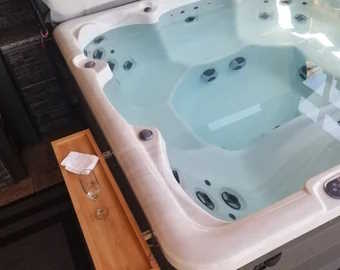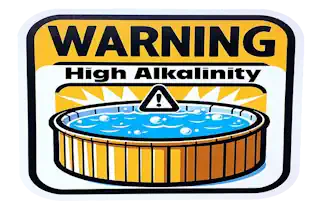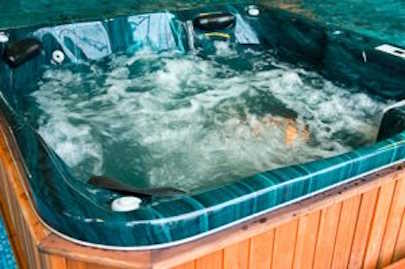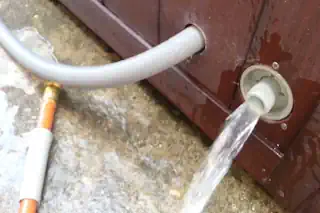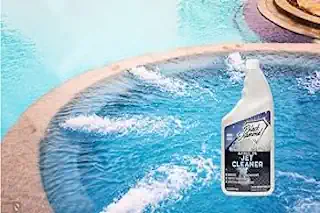Hot Tub vs. Jacuzzi: Choosing the Perfect Home Spa
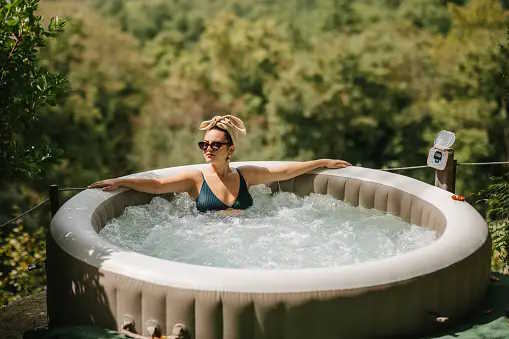
Are you dreaming of unwinding in your very own home spa after a long day? You’re not alone! Many homeowners are investing in their well-being by adding a hot tub or Jacuzzi to their backyard oasis. But what’s the difference between these two options, and which one is right for you? Let’s dive in and explore the world of hot tubs and Jacuzzis together.
Understanding the Difference
First things first, let’s clear up a common misconception: all Jacuzzis are hot tubs, but not all hot tubs are Jacuzzis. Jacuzzi is actually a brand name that has become synonymous with hot tubs over the years, much like how we often say “Kleenex” instead of “tissue.” Hot tubs, on the other hand, are the general term for a large tub of heated water used for relaxation and hydrotherapy. The Jacuzzi brand comes in many shapes, sizes, and options just like both hot tubs and spas.
Hot tubs and spas, jetted tubs, soaking tubs, and therapy tubs, are all different models with different features but are basically the same concept. Regardless, the goal is to bring the luxury of spa resorts in the convenience of our personal spaces.
The Benefits of Hot Tubs
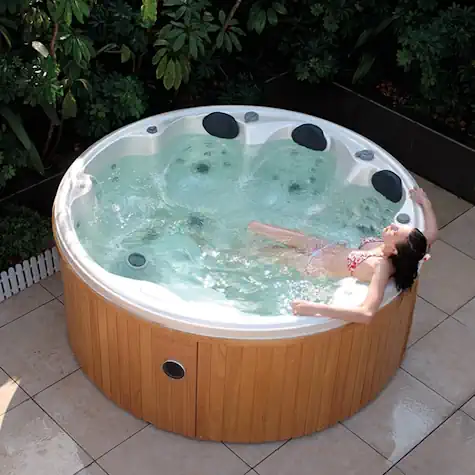
Now that we’ve got that sorted, let’s talk about the incredible benefits of soaking in a hot tub. As someone who’s experienced the transformative power of regular hot tub sessions, I can attest to the following:
Stress Relief: The combination of warm water and soothing jets works wonders for melting away stress and tension.
Muscle Recovery: Whether you’re an athlete or just someone who deals with occasional aches and pains, a hot tub can help soothe sore muscles and promote healing.
Joint Recovery: Just finished a total knee replacement and a hot soak really helps with the recovery, swelling and pain.
Improved Circulation: The heat from the water dilates your blood vessels, improving circulation throughout your body.
Better Sleep: Many people find that a soak before bedtime leads to a more restful night’s sleep.
The Jacuzzi Experience
While hot tubs offer a wonderful way to unwind, Jacuzzis take the experience to the next level with unique features like:
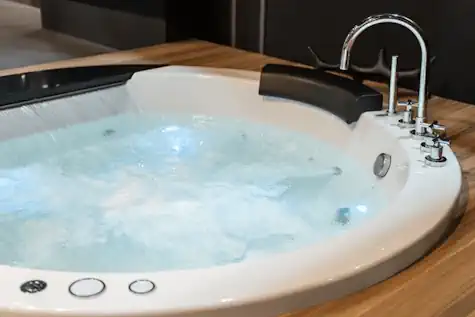
Targeted Jets: Jacuzzis often have strategically placed jets that massage specific muscle groups for maximum relief.
Ergonomic Seating: Contoured seats provide a comfortable and supportive experience during your soak.
Built-in Entertainment: Some high-end Jacuzzi models come with features like built-in speakers and colorful LED lighting for a truly immersive experience.
Weighing the Costs
Of course, adding a hot tub or Jacuzzi to your home is an investment. On average, you can expect to pay anywhere from $3,000 to $16,000 for a quality hot tub, while Jacuzzis tend to fall on the higher end of that range. It’s important to also factor in ongoing costs like electricity, water, and chemicals for maintenance.
Another cost consideration is the expense of the water. Many jacuzzi tubs are designed to be used more like a bathtub. This translates to filling the tub with 60 to 80 gallons of hot water (provided you have a hot water system that can provide 60 to 80 gallons) for a 10 to 15 minute jacuzzi session and then draining the water. If using a jacuzzi is a regular event it is better to be more hot tub focused just to save on the cost of the water.
Enhancing Your Home’s Value and Lifestyle
Adding a hot tub or Jacuzzi to your home isn’t just about the personal benefits and luxurious experiences they offer; it’s also about the value they add to your home and lifestyle. Imagine the appeal of your backyard transforming into a personal retreat, where you can entertain friends, spend quality time with family, or simply have a sanctuary for yourself.
This addition can significantly increase the attractiveness of your home to potential buyers should you decide to sell, often contributing to a higher resale value. Beyond the monetary value, the lifestyle enrichment—through promoting relaxation, well-being, and entertainment—can’t be overstated. It’s an investment in your home, your health, and your happiness, creating a space where memories are made and stress is dissolved.
A jacuzzi-style bathtub in a bathroom, like a master bathroom, is counted as a bathtub and is considered as the bathtub for the bathroom so it can be listed as a full bathroom. Hot tubs do not get the same consideration in most housing markets even if the hot tub is in the master bathroom.
Making Space for Your Spa
Before you take the plunge, consider the space and installation requirements for your new hot tub or Jacuzzi. You’ll need a solid, level surface that can support the weight of the tub when it’s filled with water and people. Most hot tubs require a 240V electrical hookup, so you may need to hire an electrician to ensure a safe and proper installation.
Eco-Friendly Considerations
If you’re concerned about the environmental impact of your home spa, look for models with energy-efficient features like well-insulated covers and energy-saving pumps. You can also explore alternative sanitation methods like salt water systems, which often require fewer harsh chemicals.
Maintenance and Longevity
Keeping your hot tubs or jetted tubs in top shape requires a commitment to regular maintenance. This includes checking and adjusting the water chemistry, cleaning the filters, and periodically draining and refilling the tub. With proper care, a quality hot tub or Jacuzzi can last anywhere from 5 to 20 years or more.
Jacuzzi vs. Hot Tub: Pros and Cons
When considering the addition of a relaxing water feature to your home, it’s valuable to weigh the benefits and drawbacks of Jacuzzis compared to hot tubs. Here’s a quick list to help guide your decision:
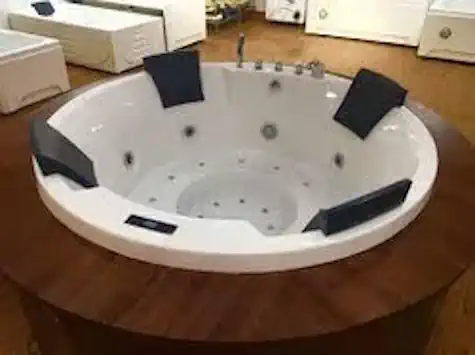
Pros of Jacuzzis:
Luxury Features: High-end jets, ergonomic seating, and integrated entertainment options offer a superior soaking experience.
Targeted Hydrotherapy: Advanced jet systems provide relief to specific areas of the body, perfect for those needing muscular or joint recovery.
Enhanced Aesthetics: Often designed with superior materials and finishes, adding a touch of elegance to your home.
Cons of Jacuzzis:
Higher Cost: With more sophisticated features, Jacuzzis generally come with a higher initial price tag and potentially greater maintenance costs.
Complex Installation: May require professional installation and specific electrical setups, increasing initial outlay.
Increased Maintenance: The advanced features and systems may demand more regular and more complex maintenance routines.
Pros of Hot Tubs:
Versatility: Suitable for relaxation, social gatherings, or hydrotherapy, without the need for high-end features.
Lower Cost: Typically more affordable in terms of initial purchase, installation, and ongoing maintenance.
Ease of Installation: Generally easier to install, with some models even offering plug-and-play flexibility.
Cons of Hot Tubs:
Basic Features: Lacks the advanced hydrotherapy water jets and ergonomic designs found in Jacuzzis, which may affect the quality of relaxation and pain relief.
Energy Efficiency: Depending on the model, hot tubs can vary significantly in their energy efficiency, potentially leading to higher electricity bills.
Lesser Aesthetics: While functional, they may not offer the same level of design and luxury appeal as Jacuzzis, potentially affecting their contribution to home value.
Ultimately, the choice between a Jacuzzi and a hot tub depends on your personal preferences, budget constraints, and desired features. Each offers a unique set of benefits that can enhance your home and lifestyle, making relaxation just a step away.
Finding Your Perfect Spa
Adding a hot tub or Jacuzzi to your home is an exciting journey, and I hope this article has provided some helpful information to guide you along the way. Remember, there’s no one-size-fits-all solution – the perfect spa is the one that meets your unique needs and enhances your quality of life.
Frequently Asked Questions (FAQ)
How often should I clean my hot tub or Jacuzzi?
Ideally, you should give your hot tub or Jacuzzi a light cleaning after each use and a more thorough clean every 3 to 4 months, which includes draining and refilling the tub. Regularly checking and adjusting water chemistry is crucial for maintaining a healthy spa environment.
Can I install a hot tub or Jacuzzi by myself?
While some smaller, plug-and-play models can be set up by the homeowner, the installation of most hot tubs and Jacuzzis requires professional assistance, especially for electrical hookups and ensuring the base can support the weight.
Are hot tubs and Jacuzzis the same thing?
The term “hot tub” is often used generically to describe a spa or above-ground pool with jets, while “Jacuzzi” is a brand name that has become synonymous with hot tubs. Jacuzzi models may have specific features not found in all hot tubs. A Jacuzzi hot tub often has more massage jets and the hydrotherapy jets are powered by a better hydrotherapy pump.
Is it worth investing in a hot tub or Jacuzzi for my home?
This depends on your lifestyle, budget, and how much value you place on relaxation and wellness at home. Many people find the investment worthwhile for the benefits of stress relief, muscle recovery, and the potential increase in home value. Even as just a soaking tub, the higher temperatures can add a real therapeutic benefit to your home.
How can I make my hot tub more eco-friendly?
Look for models with energy-efficient features, consider a salt water sanitation system to reduce chemical use, and always cover your spa when not in use to conserve heat and reduce power consumption.
Can I use my hot tub or Jacuzzi year-round?
Absolutely! Many owners enjoy their hot tubs and Jacuzzis in all seasons. In colder climates, ensure your model is well-insulated or designed for winter use to keep heating costs manageable. Also in colder climates consider an in-ground pool-style installation to take advantage of the natural ambient earth temperature to help keep the hot tub warmer.
